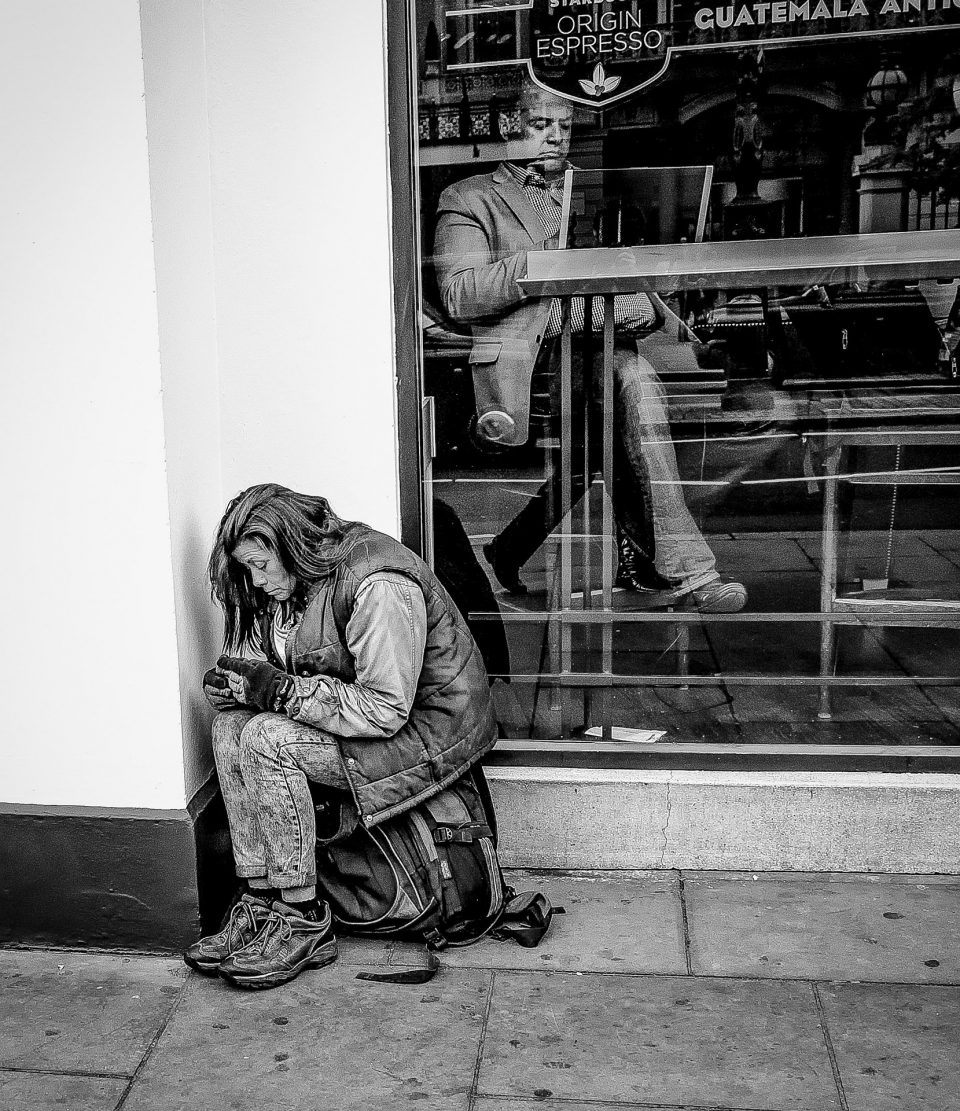Hi folks, I hope you are good! Keep your eyes out over the next couple of days about if we are meeting in gardens or on Zoom, or both!! This weeks blog comes from
Rachel…. THANKS!!
US & THEM
“Us and them” thinking is a shorthand way of thinking about people. There are people “like us” and then there is “them” – the people who are “not like us.” This kind of thinking is everywhere.
Sometimes it is playful. There are sports rivalries. There are ‘Northerners’ and ‘Southerners.’ There are ‘Geordies’ and ‘everyone else’! All of these categorisations play with the idea of a group we call “us” and a group we call “them.” Being “us” is clearly superior!
That’s all harmless but beyond a bit of teasing, “us and them” thinking is constantly – and invisibly – used as the justification for treating people in a way that we would never consider right if they were treating us that way. The argument – rarely spoken but relentlessly implied – is that although it would be wrong, undignified or offensive to treat “people like us” a certain way, it’s OK to treat “people like them” the exact same way because they are “not like us.”
We’ve probably heard about this in the context of war. To be effective at killing the enemy, soldiers have to be taught to see the enemy as something other than an ordinary person. We’ve seen it in politics – the demonisation of another group that justifies treating them inhumanely. We’ve had too many opportunities to compare police brutality against Black people and other people of colour with the way the same state polices “people like us.” Many of us witnessed the enormous outpouring of support for Syrian refugees when the image of Alan Kurdi was published and served as a wake up call that “Oh my goodness, refugees are people like us!”
These are easy examples to condemn; what is harder to see is the ways we all think in ‘us and them’ terms everyday. In fact, the thing that really blows my mind is how often we think that treating them in a way that I would personally never tolerate is actually heroic!
Let me give you an example. We are godparents to three children who are disabled, or have a disabled sibling, or both. This has been an eye-opener to me as I see how being visibly disabled can get you put into “them” categories pretty quickly. Sometimes this is people being mean or just thoughtless, but more often, in my experience, it is people being pitying and patronising. These “kind” strangers treat our amazing godkids as lesser humans and they then go away feeling smug about how kind they are.
A lady I follow on Instagram who uses a wheelchair, wrote this about this dynamic, saying:
“Can we stop praising people for interacting with disabled people? Stop praising kids for playing with disabled kids. Stop praising teens for asking a disabled teen to prom. What does that actually say about how society views disability? It’s heroic to be kind to us. But why though? Nondisabled people – imagine a time you were asked on a date or a friend asked you to go somewhere. Then imagine this made the papers and Facebook, with everyone hailing your mate/date as a hero for doing it. How’s ya self esteem feeling? Imagine ya kid makes a new mate then suddenly the Mum of said kid is making a post all about how kind and wonderful her kid is for playing with your kid?!”
I think that is a classic example of “us” and “them” thinking that gets celebrated. ‘Us and them’ thinking is not about difference; it’s about superiority. Difference is beautiful. Difference that comes with a sense of superiority is destructive. ‘Us and them’ thinking is not being generous or charitable either. Generosity is beautiful. Generosity that comes with entitlement to have ‘power over’ other people is destructive.
I think the more valuable thing we can do to combat us and them thinking is to dig deeper into why we think it’s OK not to do unto others as we would like them to do unto us (if we were in the same situation). We probably can’t help having some us and them thinking; we are so surrounded by it, it’s almost instinctive. But when we start thinking about other people as a ‘them,’ it’s seems to be almost inevitable that we start to see them as lesser too, imbuing them with less of the same dignity, humanity and power that we give ourselves. We can catch ourselves, and ask a challenging question: if the roles were reversed, would this honestly still be OK with me?
Questions:
Is there a playful, harmless version of ‘us and them’ thinking that you identify with? (sports teams, clubs, school loyalties, regional ties etc.)
Where do you see ‘us and them’ thinking in our everyday lives?
Is ‘us and them’ thinking built into the heart of Christianity? Children of Israel/everyone else. Jews/Gentiles. Believers/unbelievers. Is some sense of God-given superiority built into those concepts?
Have you ever been on the receiving end of ‘us and them’ thinking? How did being treated like a ‘them’ make you feel?
How can we combat ‘us and them’ thinking in ourselves and in society?
Peace, Rob.
Rob Wylie is the founder of BeachcomberFX and guides its leadership team. He has worked in the North East for over 20 years and has vast experience from various roles he has held. He has a passion for Fresh Expressions of Church and Pioneer Ministry as well as beer, beaches and Miniature Schnauzers.

